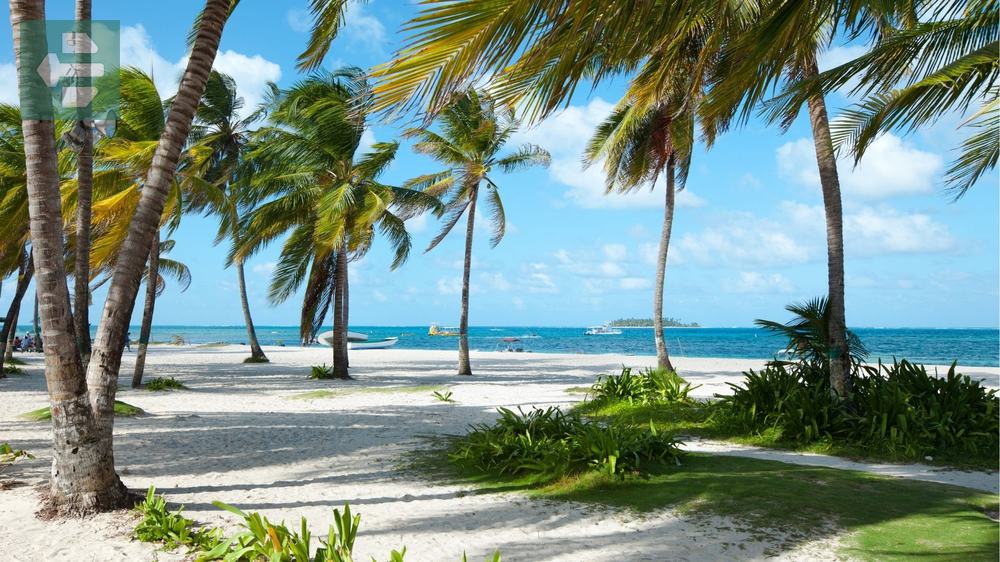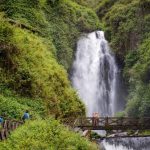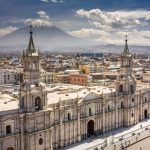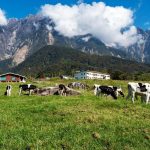Colombia offers extraordinary diversity, from the liquid rainbow of Caño Cristales to the ancient mysteries of Ciudad Perdida and the towering wax palms of Cocora Valley. The country's hidden gems include the Tatacoa Desert's star-filled nights, San Agustín's stone guardians, and the pristine waters surrounding Gorgona Island.
Keep reading as we uncover the best places to visit in Colombia that will transform your understanding of South America's most surprising destination.
List of Contents
- 1. Caño Cristales: The River That Escaped From Paradise
- 2. Ciudad Perdida: Four Hundred Years Before Machu Picchu
- 3. Cocora Valley: Walking Among Giants
- 4. Tatacoa Desert: Colombia's Red Planet
- 5. San Agustín: Guardians in Stone
- 6. Tierradentro: Chambers Beneath the Earth
- 7. Puracé National Park: Land of Fire and Ice
- 8. Chingaza National Park: Bogotá's Secret Water Source
- 9. Farallones de Cali National Park: Vertical Wilderness
- 10. Utría National Park: Where Jungle Meets Ocean
- 11. Gorgona Island: Prison Turned Paradise
- 12. Malpelo Island: The Shark Island
1. Caño Cristales: The River That Escaped From Paradise
Caño Cristales runs red, yellow, green, blue, and black from June to November. The Macarenia clavigera plant creates this natural phenomenon, blooming beneath the crystal-clear water in patterns that change with the current.
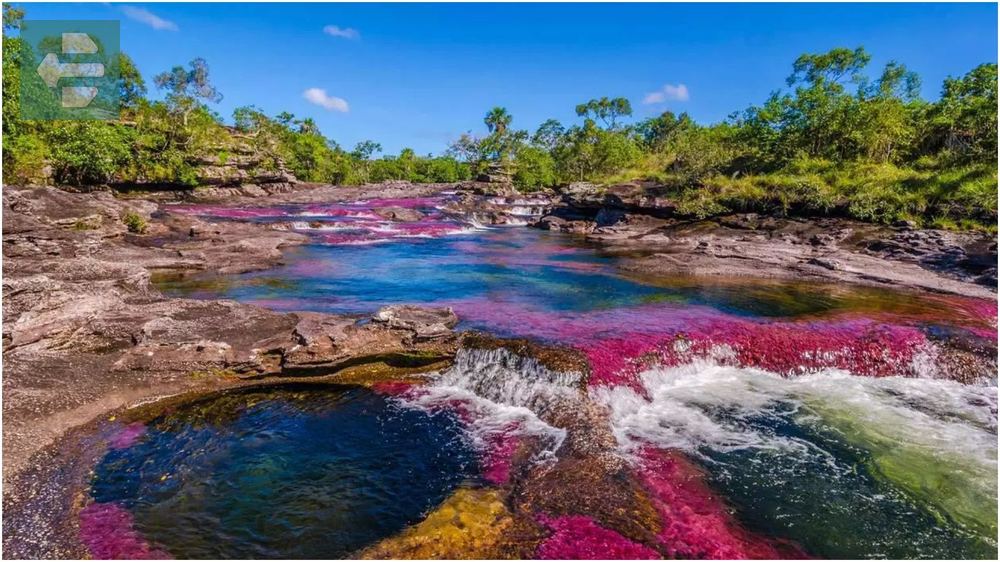
You cannot reach this place by road. The journey requires a flight to La Macarena, then a boat ride, then a hike. The effort filters out casual tourists, leaving you with something few people ever witness.
I stood knee-deep in those colored waters on a September morning, watching the plants sway like silk scarves in the current. The silence was complete except for the sound of water moving over stone.
Quick Facts:
- Peak Season: June-November
- How to Get There: Fly to La Macarena, boat + hike
- Entry Fee: From $200 (guided tour required)
- Suggested Stay: 2-3 days
- Key Spots: Los Ochos, El Tapete, La Escalera
2. Ciudad Perdida: Four Hundred Years Before Machu Picchu
The Lost City was built by the Teyuna people around 800 CE. Spanish colonizers never found it. The site remained hidden until 1972, when treasure hunters stumbled upon gold figurines in the jungle.
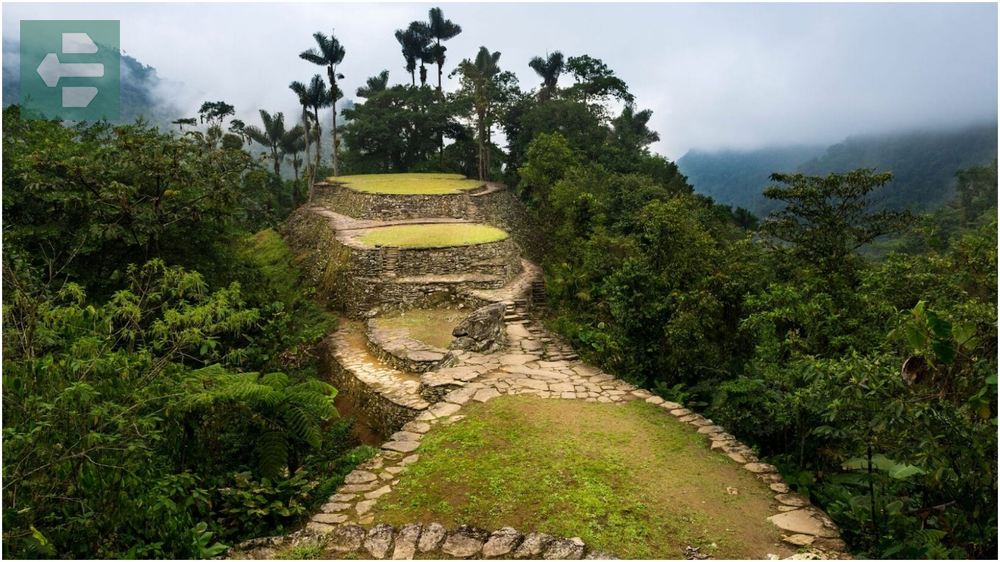
The four-day trek covers 44 kilometers through dense rainforest. You sleep in hammocks, cross rivers on foot, and climb 1,200 stone steps carved into the mountainside. Modern amenities do not exist here.
Local Kogi guides still consider this place sacred. They perform ceremonies at dawn while you watch the terraces emerge from morning mist, exactly as they have for over a thousand years.
Quick Facts:
- Peak Season: December-March, July-August
- How to Get There: 4-day guided trek from Santa Marta
- Entry Fee: From $300 (4-day tour)
- Suggested Stay: 4 days minimum
- Key Spots: Main terraces, ceremonial areas, river crossings
3. Cocora Valley: Walking Among Giants
The world's tallest palm trees grow here. Quindío wax palms reach 60 meters high and live for 200 years. They stand scattered across green hills like ancient sentinels, their fronds catching light that filters through constant mist.
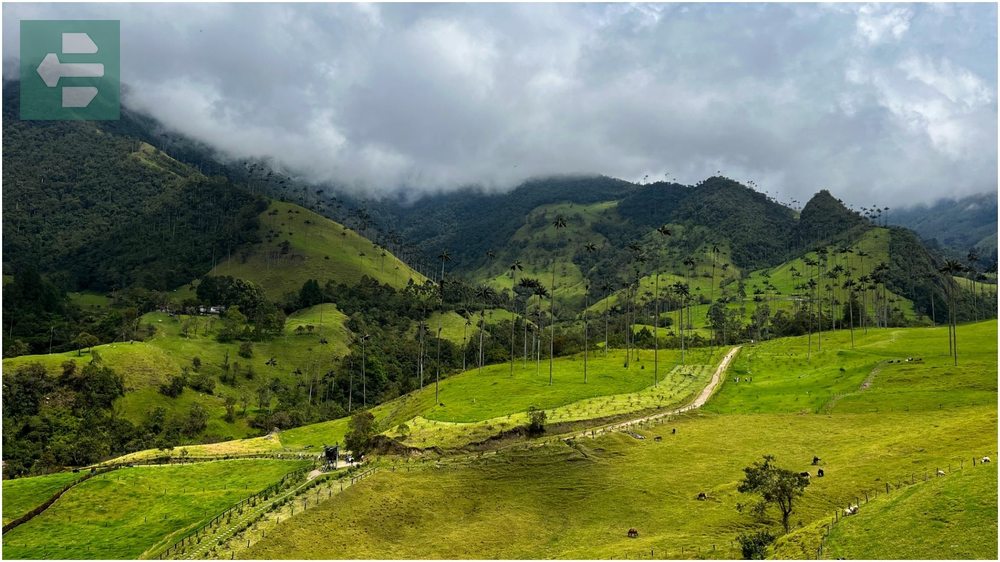
Start your hike early when the valley fills with soft morning light. The trail loops through cloud forest before opening onto grasslands where the palms grow tallest. Hummingbirds dart between the fronds overhead.
Locals say the best photographs happen just after sunrise, when fog clings to the palm trunks and the light turns golden. Bring layers—mountain weather changes quickly here.
Quick Facts:
- Peak Season: December-March, July-August
- How to Get There: 30 minutes from Salento by jeep
- Entry Fee: From $5
- Suggested Stay: 1-2 days
- Key Spots: Palm viewing area, cloud forest trail, Acaime hummingbird sanctuary
4. Tatacoa Desert: Colombia's Red Planet
Tatacoa Desert stretches across 330 square kilometers of red and gray canyons carved by wind and rare rainfall. The landscape resembles Mars more than Earth, with formations that shift color throughout the day.
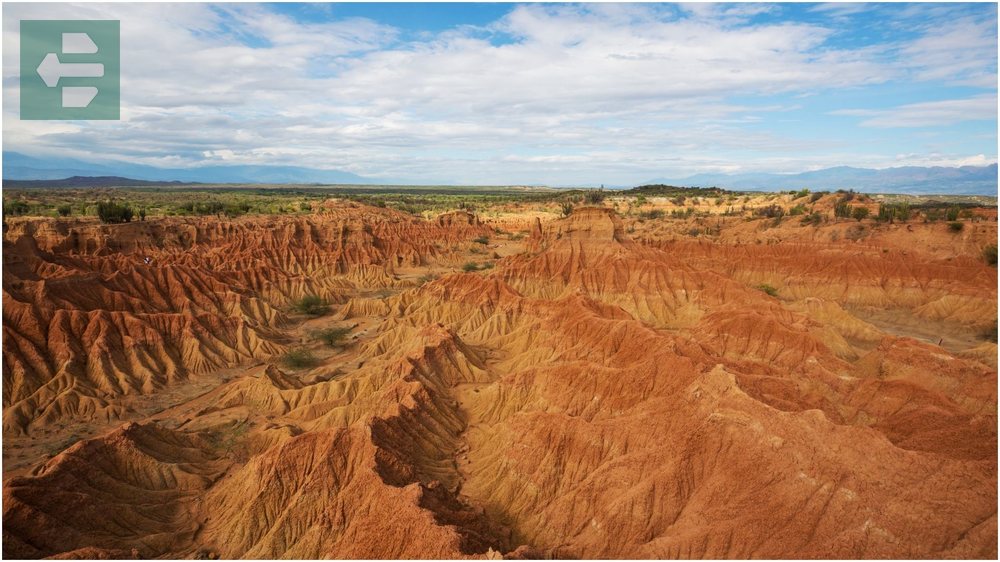
Two distinct zones create different experiences. The red desert burns orange at sunset, while the gray desert feels like walking through a lunar landscape. Both offer complete silence broken only by wind through stone.
At night, Tatacoa becomes one of South America's premier stargazing destinations. The desert's dry air and zero light pollution reveal the Milky Way in detail impossible to see elsewhere. Bring a sleeping bag and prepare to stay awake.
Quick Facts:
- Peak Season: December-March
- How to Get There: 3 hours from Neiva by bus
- Entry Fee: Free
- Suggested Stay: 2-3 days
- Key Spots: Los Hoyos (red zone), Los Laberintos (gray zone), observatory
5. San Agustín: Guardians in Stone
More than 500 monolithic statues dot the hills around San Agustín, carved by unknown hands between the 1st and 8th centuries CE. The sculptures depict warriors, shamans, and creatures that blur the line between human and animal.
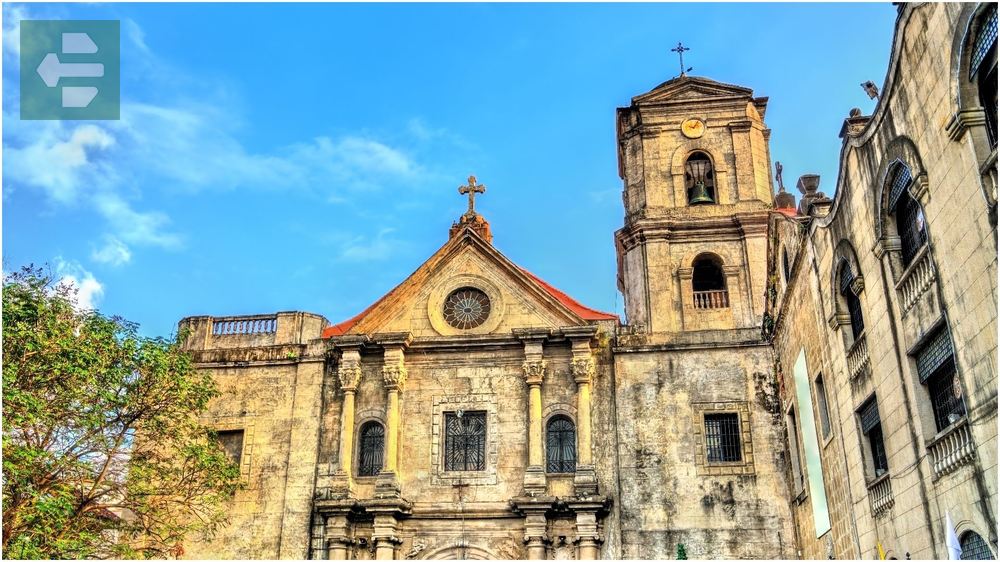
Each statue was carved from volcanic rock and placed with purpose archaeologists still debate. Some guard tombs, others mark water sources, and many seem to watch over the valley with expressions both fierce and serene.
The morning I spent alone among these guardians, mist rising from the valley floor, I understood why pre-Columbian peoples considered this place sacred. The stones seem to hold memory.
Quick Facts:
- Peak Season: December-March, July-August
- How to Get There: 7 hours from Bogotá by bus
- Entry Fee: From $8
- Suggested Stay: 2-3 days
- Key Spots: Archaeological Park, Alto de los Ídolos, Lavapatas
6. Tierradentro: Chambers Beneath the Earth
Tierradentro hides Colombia's most sophisticated pre-Columbian burial chambers. Between the 6th and 10th centuries, indigenous peoples carved elaborate tombs into volcanic hillsides, painting geometric patterns on underground walls.

Five archaeological sites contain over 100 hypogea—underground chambers accessed by spiral staircases carved from stone. The largest chambers stretch eight meters deep, with burial niches and painted designs still visible after a thousand years.
You descend alone into these spaces with flashlight in hand. The painted spirals and human figures seem to move in the shifting light, creating a connection across centuries that words cannot capture.
Quick Facts:
- Peak Season: December-March, June-August
- How to Get There: 4 hours from Popayán by bus
- Entry Fee: From $12
- Suggested Stay: 2 days
- Key Spots: Alto de San Andrés, Segovia, El Duende
7. Puracé National Park: Land of Fire and Ice
Puracé volcano rises 4,646 meters above sea level, its crater lake reflecting sky through sulfur-tinted mist. The surrounding páramo ecosystem creates landscapes that exist nowhere else—giant frailejones plants and crystalline streams flowing through valleys carved by ancient glaciers.

The hike to the crater takes six hours through terrain that changes with every step. You begin in cloud forest, climb through alpine meadows, and finish on volcanic rock where few plants survive.
Spectacled bears roam these heights, though sightings require luck and patience. I spent two days here without seeing one, but found their claw marks on trees and felt their presence in the mountain's silence.
Quick Facts:
- Peak Season: December-March
- How to Get There: 2 hours from Popayán
- Entry Fee: From $10
- Suggested Stay: 2-3 days
- Key Spots: Puracé crater, páramo trails, hot springs
8. Chingaza National Park: Bogotá's Secret Water Source
Chingaza supplies 70% of Bogotá's drinking water through a páramo ecosystem that functions like a giant sponge. The park preserves 76,600 hectares of high-altitude wetlands where endemic plants filter mountain runoff into crystal-clear streams.

Laguna de Chingaza reflects sky so perfectly that walking its shores creates vertigo. The water sits at 3,250 meters elevation, surrounded by frailejones that grow one millimeter per year and live for centuries.
White-tailed deer move through morning mist like ghosts. I photographed one standing motionless beside the laguna at dawn, its reflection creating perfect symmetry in the still water.
Quick Facts:
- Peak Season: December-March, July-August
- How to Get There: 2 hours from Bogotá
- Entry Fee: From $8
- Suggested Stay: 1-2 days
- Key Spots: Laguna de Chingaza, páramo trails, viewpoints
9. Farallones de Cali National Park: Vertical Wilderness
The Farallones rise directly from sea level to 4,280 meters in less than 50 kilometers, creating one of the world's steepest elevation gradients. This vertical journey passes through every ecosystem Colombia contains.

Cloud forest clings to near-vertical slopes where endemic birds like the multicolored tanager live in trees found nowhere else. The park protects watersheds that supply water to two million people in the Cauca Valley below.
Access requires serious commitment. Trails disappear into mist, and weather changes without warning. Local guides from indigenous communities know paths their ancestors used for centuries—knowledge essential for safe passage.
Quick Facts:
- Peak Season: December-March, July-August
- How to Get There: 1.5 hours from Cali to park entrance
- Entry Fee: From $6
- Suggested Stay: 2-4 days
- Key Spots: Cloud forest trails, páramo summits, waterfalls
10. Utría National Park: Where Jungle Meets Ocean
Utría protects 54,300 hectares where tropical rainforest flows directly into Pacific waters. Humpback whales arrive here between July and October to give birth in warm, protected bays.

The park contains Colombia's most pristine mangrove forests, where poison dart frogs in electric colors move through roots that breathe with the tide. Howler monkeys wake the forest at dawn with calls that carry across water.
I watched a mother humpback whale breach with her calf from a small boat in Utría Bay, water cascading from 40-ton bodies that seemed to hang in air before crashing back to sea. The moment lasted three seconds and changed everything.
Quick Facts:
- Peak Season: July-October (whale season)
- How to Get There: Flight to Nuquí, then boat
- Entry Fee: From $10
- Suggested Stay: 3-4 days
- Key Spots: Utría Bay, mangrove channels, whale watching points
11. Gorgona Island: Prison Turned Paradise
Gorgona served as Colombia's Alcatraz until 1984. The island prison housed the country's most dangerous criminals on 26 square kilometers surrounded by shark-infested waters. Today, it protects some of South America's richest marine biodiversity.

Poison dart frogs, boa constrictors, and blue lizards live in jungle that grows over abandoned prison buildings. Underwater, hammerhead sharks, whale sharks, and manta rays patrol coral reefs in water so clear you can see 40 meters down.
You can sleep in converted prison cells where walls still bear prisoners' graffiti. The contrast creates strange dreams—waking to tropical bird songs in a place where men once measured time in years.
Quick Facts:
- Peak Season: December-April, July-August
- How to Get There: Flight to Guapi, then boat
- Entry Fee: From $20
- Suggested Stay: 3-5 days
- Key Spots: Diving sites, prison ruins, turtle nesting beaches
12. Malpelo Island: The Shark Island
Malpelo Island rises from 4,000-meter-deep Pacific waters 500 kilometers from Colombia's coast. This UNESCO World Heritage site exists for one purpose: protecting the largest hammerhead shark population in the world.

Schools of hammerheads form tornadoes around underwater seamounts, sometimes numbering in the hundreds. Whale sharks, silky sharks, and Galápagos sharks patrol deeper waters in numbers found nowhere else.
The island itself forbids landing—Malpelo exists only for diving. I descended 30 meters into blue water and found myself surrounded by hammerheads moving in perfect formation, their movements synchronized like a underwater ballet that has played for millions of years.
Quick Facts:
- Peak Season: December-May
- How to Get There: Liveaboard diving boats from Buenaventura
- Entry Fee: From $50 (diving tours only)
- Suggested Stay: 8-10 days (liveaboard)
- Key Spots: El Bajo, La Nevera, monster school diving sites
Colombia rewards travelers who venture beyond guidebook recommendations. These twelve places offer experiences that reshape how you see the world.
Each destination demands something different—physical effort, patience, or simply the willingness to stand small before something larger than yourself. The country's best places do not make things easy. They make things unforgettable.
Your journey through Colombia begins when you choose which of these places calls to you first. The rivers will still run rainbow. The whales will still sing. The stones will still keep their thousand-year vigil.
The question is not whether these places exist—it is whether you will.
